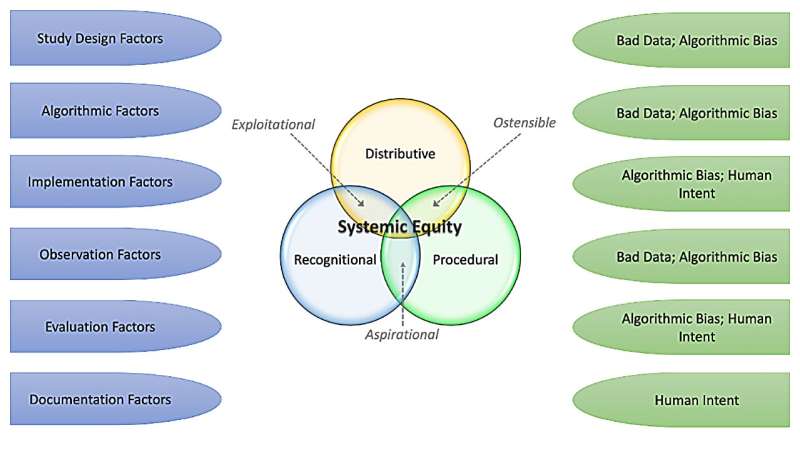Credit: Frontiers of Environmental Science & Engineering (2024). DOI: 10.1007/s11783-024-1825-2
Environmental data science and machine learning (ML) are increasingly vital for addressing ecological challenges. However, these technologies can inadvertently perpetuate biases present in their training data, leading to socioecological inequities. The field faces issues such as data integrity, algorithmic bias, and model overfitting, which necessitate a deeper understanding and more equitable approaches.
The current debate and evolution in this area underscore the importance of embedding equity throughout research and design domains to ensure fair and unbiased outcomes.
A paradigm shift towards integrating socioecological equity into environmental data science and machine learning (ML) is advocated in a new perspective article published in the Frontiers of Environmental Science & Engineering.
Authored by Joe F. Bozeman III from the Georgia Institute of Technology, the paper emphasizes the importance of understanding and addressing socioecological inequity to enhance the integrity of environmental data science.
This study introduces and validates the Systemic Equity Framework and the Wells-Du Bois Protocol, essential tools for integrating equity in environmental data science and machine learning. These methodologies extend beyond traditional approaches by emphasizing socioecological impacts alongside technical accuracy.
The Systemic Equity Framework focuses on the concurrent consideration of distributive, procedural, and recognitional equity, ensuring fair benefits for all communities, particularly the marginalized. It encourages researchers to embed equity throughout the project lifecycle, from inception to implementation.
The Wells-Du Bois Protocol offers a structured method to assess and mitigate biases in datasets and algorithms, guiding researchers to critically evaluate potential societal bias reinforcement in their work, which could lead to skewed outcomes.
"Our work is not just about improving technology but ensuring it serves everyone justly," said Bozeman. "Incorporating an equity lens into environmental data science is crucial for the integrity and relevance of our research in real-world settings."
This research not only highlights existing challenges in environmental data science and machine learning but also offers practical solutions to overcome them. It sets a new standard for conducting research that is just, equitable, and inclusive, thereby paving the way for more responsible and impactful environmental science practices.
More information: Joe F. Bozeman, Bolstering integrity in environmental data science and machine learning requires understanding socioecological inequity, Frontiers of Environmental Science & Engineering (2024). DOI: 10.1007/s11783-024-1825-2
Provided by TranSpread
























